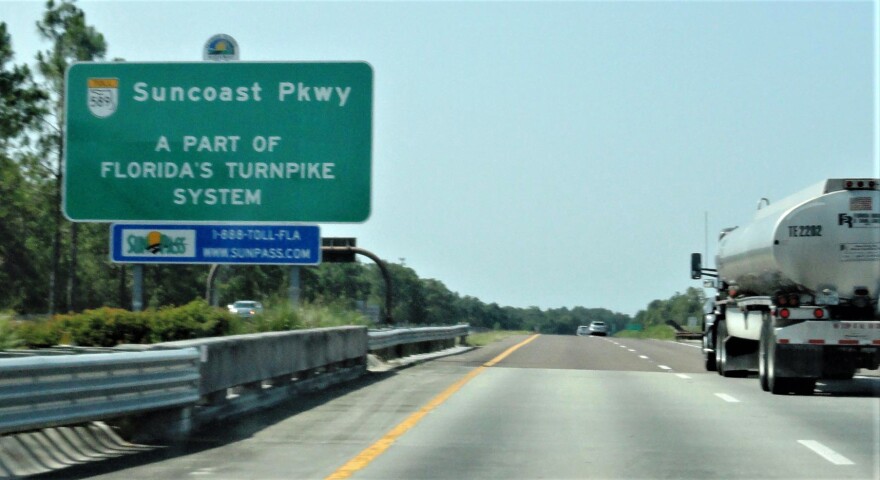Florida lawmakers should anticipate some “political and social” pressure at the end of a one-year program that will offer credits to frequent toll-road users, according to a financial rating agency.
In a report released Tuesday, Moody’s Investors Service said the program, which will begin Jan. 1, will “buoy” toll road demand without reducing revenues because the state will make up lost toll dollars. But the report also questioned what could occur when the temporary program ends.
“If individual toll roads decide to continue this program beyond its expiration or implement other major discounts without any offsetting mechanisms from the state, toll revenue will decline despite the induced demand,” Moody’s said in the report. “If roads decide to revert to full toll rates in 2024, they will face political and social pressure from drivers when the discounts expire.”
Under the program, which lawmakers approved during a special legislative session last week, motorists with SunPass and other Florida transponder accounts will receive 50 percent credits in each month they record 35 or more toll-road trips. The first credits will appear on statements in February.
Gov. Ron DeSantis signed the measure (SB 6-A), calling it a way to offset inflation and gas prices.
The measure expanded on a program DeSantis put in place in September. That program has offered 20 percent to 25 percent discounts to motorists who surpass 40 toll transactions a month.
While the new program received unanimous approval in the House and Senate, a few lawmakers suggested alternatives such as lowering overall toll rates.
Asked what will happen when the program ends Jan. 1, 2024, House sponsor Demi Busatta Cabrera, R-Coral Gables, said the Legislature “can look at continuing this program if we see fit.”
“I would hope that maybe some of these expressway authorities can also look at providing relief,” Busatta Cabrera said during a Dec. 13 committee meeting.
Moody’s said Florida toll roads already have a track record of being exposed to political involvement in setting toll rates. The report also said the program shouldn’t impact revenues of toll agencies -- the Florida Turnpike System, the Florida Department of Transportation, the Central Florida Expressway Authority, the Tampa-Hillsborough County Expressway Authority, Lee County Tolls and the Miami-Dade County Expressway Authority -- because the Legislature made $500 million available from general revenue to make up for lost toll dollars.
“Most Moody’s-rated Florida toll roads could maintain their credit quality even with lower toll revenue --- depending on how steep any discounts are and how long they last,” the report said. “These roads have strong financials and we expect they would adjust their toll rates or take actions when needed to ensure their financials remain strong and in line with their current rating categories.”
The program is expected to give breaks to 1.2 million drivers, who on average will save $400 during the year, the governor’s office said. Toll money goes toward such things as paying off bonds that finance road construction.








